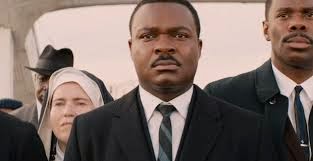 Being plucked from the lowly ranks of the Corps de Ballet to be thrust into the forefront and ask to choreograph a new ballet for the prestigious New York City Ballet is the stuff that dreams are made of. For 25 year old dancer Tyler Peck this dream actually became a reality, and filmmaker Jody Lee Lipes was there every step of the way to create an enthralling and intimate record of how the Ballet Company's 422'nd new ballet came into being.
Being plucked from the lowly ranks of the Corps de Ballet to be thrust into the forefront and ask to choreograph a new ballet for the prestigious New York City Ballet is the stuff that dreams are made of. For 25 year old dancer Tyler Peck this dream actually became a reality, and filmmaker Jody Lee Lipes was there every step of the way to create an enthralling and intimate record of how the Ballet Company's 422'nd new ballet came into being.
As well as dancing in the back row, Peck had also been attending the Company's Choreography Institute and so impressed the powers-that-be that he became the only current dancer to be asked to stage a new work for the Company. This piece commissioned for the 2013 Season would in fact be his third piece, and this time he chose to feature three of the Company's Principal Dancers and set the ballet to a musical composition from 1935. He had exactly two months to turn his dream into a staged piece.
Lipes filmed the whole process without narration or explanation which greatly adds to the build up to the all important premiere. Peck is disarmingly calm throughout and although he is clear and quite forceful about what he wants to achieve, he is not adverse to seeking advice, and is positively polite when it is offered to him unsolicited as times. For one so much younger than most of all the other people involved, from the dancers to the stage managers and even the orchestra, he is both courteous and self-assured in a way that makes everyone really want him to succeed.
We first see Peck experimenting on his own as he works out moves which he then abstractly plots out on paper. His soloists listen respectfully and quite intently as he describes in minute detail as the ballet is shaped, but he is more than happy to take on board when they suggest alternative ways of doing certain moves. Even ballet master Albert Evans who is always on hand as a second pair of eyes, chips in occasionally with details he feels that the young choreographer may have missed, but like everyone else, he is also happy to defer to Peck in the end.
Lipp never shows us the finished Ballet even at the Premiere but his camera trails Peck everywhere and giving us vignettes of the rehearsal process and the behind the scenes maneuvering of getting the staging and costumes. As the big night looms close and the ballet gets its fine tuning, Lipp's camera captures all the fine detail of the creative process that ensures even if the remarkably calm Peck doesn't outwardly seem that invested in his own success, we certainly are.
 Come Opening Night and its a full house at the Lincoln Center, and Peck is sitting in the audience to watch his 'Paz de la Jolla' get a standing ovation from the crowd. After he joins the dancers on stage to take a bow, he hurries off to his dressing room. He has to change for the last Ballet in tonight's program, in which he is back dancing with the Corps De Ballet. This particular dream for this exceptionally talented young man is over.
Come Opening Night and its a full house at the Lincoln Center, and Peck is sitting in the audience to watch his 'Paz de la Jolla' get a standing ovation from the crowd. After he joins the dancers on stage to take a bow, he hurries off to his dressing room. He has to change for the last Ballet in tonight's program, in which he is back dancing with the Corps De Ballet. This particular dream for this exceptionally talented young man is over.
This enthralling and engrossing documentary is so beautifully crafted that it will appeal to more than just ballet aficionados. Watching such a young talent at work in front of your eyes like this is a real treat to behold, especially when he is someone that I'm sure that even Mr. Balanchine himself would approve of.
P.S. Since then Justin Peck has been promoted to Soloist.
★★★★★★★★
★★★★★★★★






.jpeg)

.jpg)






.jpeg)




.jpeg)
.jpeg)








